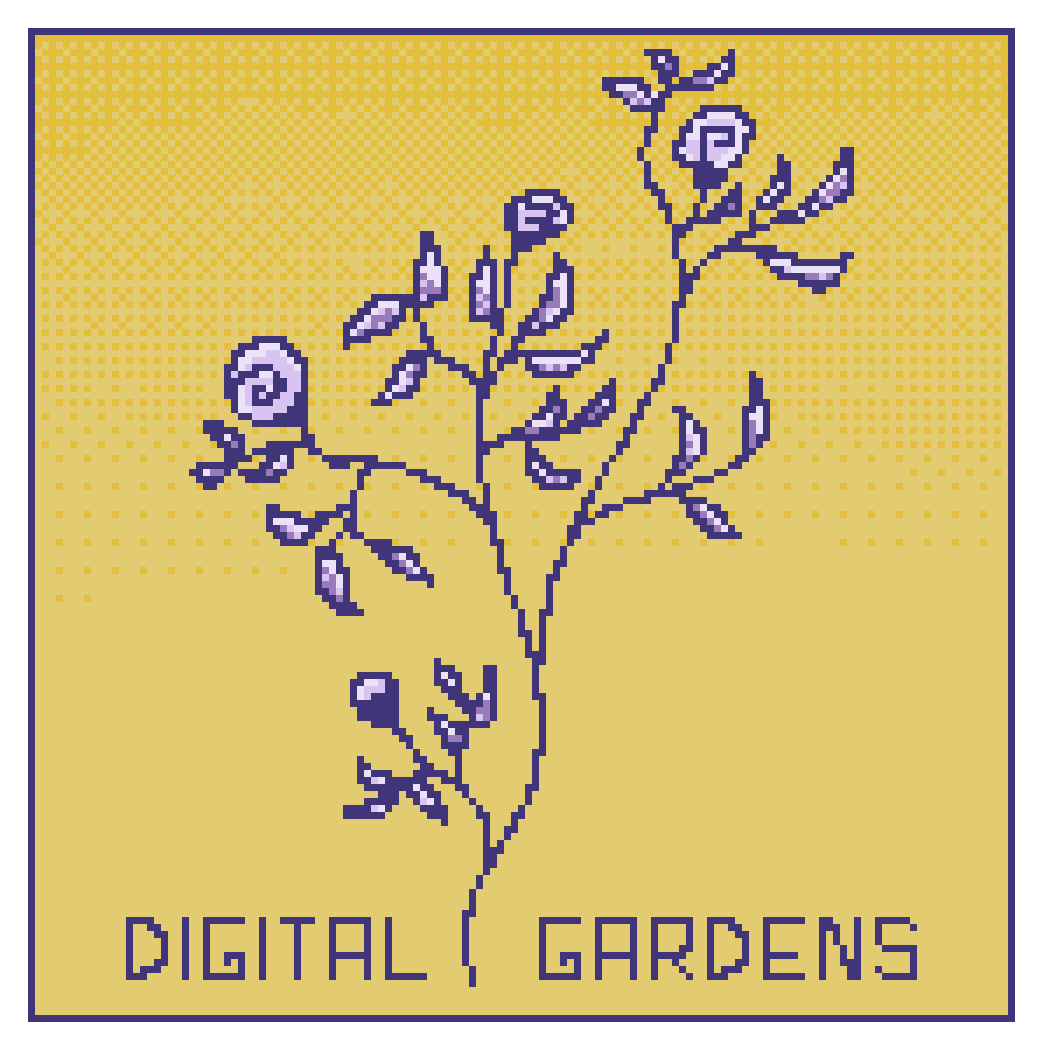Digital gardens, zettlekasten, and paranormal research
How and why I'm sharing my in-progress research notes

Last week, I wrote about how I set up a digital garden to share my research, but I didn't go into a ton of detail about what that is, why I made it, and how I set it up. To remedy that, let's talk about some of my favorite subjects: research, personal knowledge management, and digital gardens.
I only recently learned about the concept of digital gardening, though it looks like it's been floating around in more techie corners of the internet since 2018 or so. But it's one of those things where as soon as I learned about it, my response was, wow, this is so great; I can't believe this isn't more common!
What is a digital garden?
A digital garden is essentially a personal wiki full of notes. It's created by and for yourself, even it's public.
The idea is that you can share your ideas while developing them. If all goes well, you'll develop your thoughts more than you might have in a private notetaking system. You might even get helpful feedback on your ideas from people who visit the garden.
That's why it's couched in the language of tending a garden: you're always pruning and adding things, and people can visit and hang out. But it's still a private garden, something that you created for yourself and are sharing just because you want to.
So there isn't the same expectation of Creating Content for Consumption™. We've all been trained to think of ourselves as businesses and brands (whether or not we make money from our creative work), which is absurd and unhelpful when it comes to learning and developing ideas. So the digital garden is a nice alternative way to share reflections online.
A ton of people have written eloquent, intelligent things about digital gardens. This is a great definition of a digital garden, from Joel Hooks' blog. It's all about learning in public:
The phrase "digital garden" is a metaphor for thinking about writing and creating that focuses less on the resulting "showpiece" and more on the process, care, and craft it takes to get there.
I also liked these proposed digital garden terms of service, which go into depth into some of the philosophy and thinking behind digital gardens. (Last week, when I drafted this post, that page was up, but it seems to have been taken down, so I shared the archived version.)
MIT Technology review published a nice writeup of digital gardens back in 2020, and I loved this summary of the ethos behind them:
These creative reimaginings of blogs have quietly taken nerdier corners of the internet by storm. A growing movement of people are tooling with back-end code to create sites that are more collage-like and artsy, in the vein of Myspace and Tumblr—less predictable and formatted than Facebook and Twitter. Digital gardens explore a wide variety of topics and are frequently adjusted and changed to show growth and learning, particularly among people with niche interests. Through them, people are creating an internet that is less about connections and feedback, and more about quiet spaces they can call their own.
About my digital garden
You can check out my digital garden at the extremely creative URL chrisdigitalgarden.com.
The whole thing will always, of course, be a work in progress, but it's especially no-frills right now.
For example, I really need to add some topic navigation so you can access notes through means other than clicking on a recently updated note and then hopping around using backlinks and the graph that visualizes all of my notes. And I haven't done any tinkering with the look and feel of the place.
I won't be sharing all of my notes in the digital garden. My zettlekasten is relatively new (less than a year old), so I still have fewer than 2,000 notes in there. But, in contrast, I've currently shared fewer than 100 notes in my digital garden. My planned workflow is to share things as I clean up and develop my "permanent" or "evergreen" notes.
If you want my more refined (though nevertheless ever-evolving) thoughts, they'll still live on my podcast or these blog posts, of course.
The digital garden will be my rough notes.
They’re written for me, first and foremost, but I’ve decided to share them with the public to
- force myself to take better, more rigorous notes and revisit them often, and
- share what I’m learning about with fellow researchers.
If you decide to reference any of my research, feel free—just attribute it to me.
Since the notes are written for myself first and other audiences second, you can expect to find plenty of broken links to unshared notes, bits that may make sense to no one but myself, typos, and other mistakes.
That’s all as it should be—my goal with the garden learn in public, and I’m always refining my thoughts and ideas. Though that's my aim with this blog as well, I expressly write these posts for an audience, which isn't really true with my garden of notes.
Look out for the next few blog posts, where I'll go into a bit more detail about why and how I set up the digital garden.

